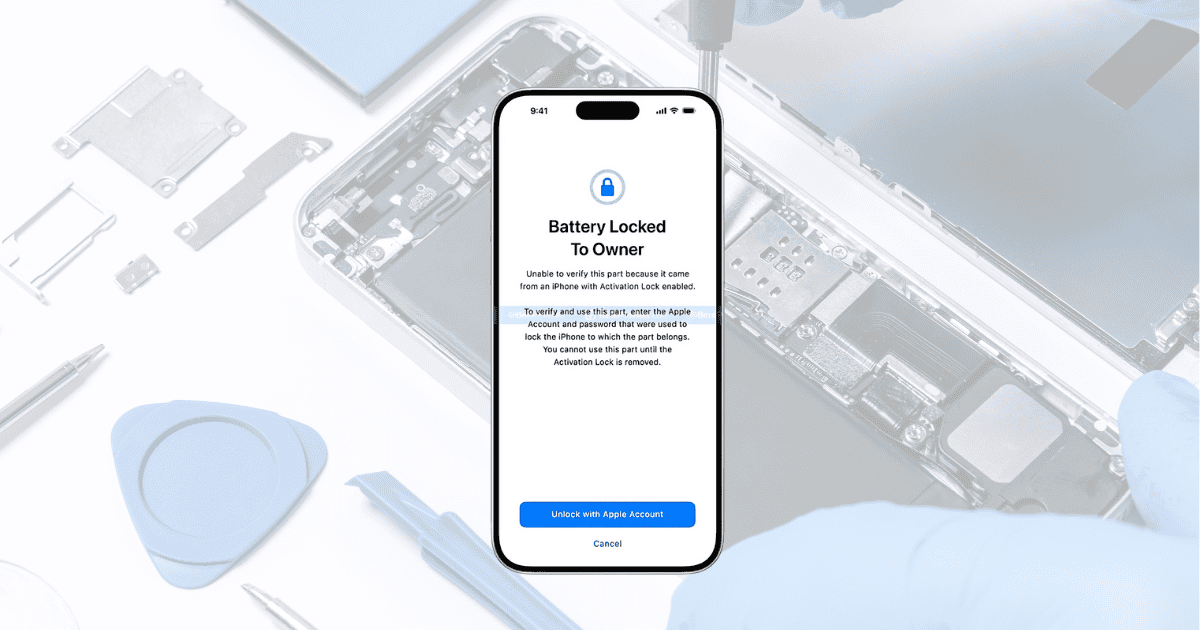With the release of iOS 18, Apple has introduced a major upgrade in device security aimed at curbing the resale of stolen iPhone parts. The standout feature, Activation Lock, binds crucial iPhone components like batteries and displays to the owner’s Apple ID, making it harder for thieves to profit from stolen devices. As Apple raises the bar in terms of security, the implications for both the repair industry and consumers are significant. Understanding how this feature affects the market and repair practices will be essential in navigating the future of iPhone ownership.
Overview of iOS 18 Features
Apple’s iOS 18 delivers a host of new features, with Activation Lock being one of the most prominent advancements. This feature enhances device security by binding essential iPhone components to the owner’s Apple ID. By doing so, Apple limits the ability of thieves to reuse or sell stolen parts, reducing the financial incentive for theft.
Key iOS 18 Features:
- Activation Lock: Binds parts like batteries, displays, and cameras to the original Apple ID.
- Enhanced Calibration: Requires user authentication for parts to function properly.
- Security Integration: Compatible with iPhone models from iPhone 12 onward.
- Deterred Theft Market: Stolen parts are rendered unusable without proper authentication.
By creating a more secure environment for both devices and users, iOS 18 marks a turning point in how Apple approaches device security, encouraging responsible repair and reducing the appeal of stolen components.
Activation Lock Explained
Activation Lock in iOS 18 is a transformative feature designed to make iPhone theft less profitable by reducing the value of stolen parts.
How Activation Lock Works:
- Component Binding: Batteries, displays, and other key components are tied to an Apple ID, rendering them useless without proper authentication.
- Password Verification: If a part is removed from a locked device, the original Apple Account password is required for it to be functional in another device.
- Deterrence: This strict verification system significantly reduces the resale value of stolen parts, making them less attractive to thieves.
As part of Apple’s broader initiative to secure iPhones, Activation Lock plays a critical role in preventing unauthorized use of stolen components.
Impact on Device Theft
The introduction of Activation Lock in iOS 18 is expected to have a significant impact on iPhone theft by directly addressing the lucrative black market for stolen parts.
Key Impacts:
- Reduced Resale Value: Stolen components that require authentication cannot be resold or used, decreasing the incentive for theft.
- Deterring Theft: By lowering the profitability of stolen parts, theft rates may decline.
- Broader Security Ecosystem: As fewer stolen iPhones enter the resale market, the entire security framework for smartphones is bolstered.
By rendering key components unusable without the original owner’s password, Apple has effectively reduced the incentive for criminals to steal iPhones.
Benefits for Repair Shops
The Activation Lock feature offers benefits for legitimate repair shops by promoting responsible repair practices.
Benefits for Repair Shops:
- Expanded Parts Access: Legitimate repair shops can confidently use second-hand parts, knowing they will function correctly with the proper authentication.
- Customer Trust: Authorized repairs using genuine components help build trust between repair shops and customers.
- Enhanced Integrity: The requirement for the owner’s Apple ID fosters transparency and accountability in repairs.
This security measure creates opportunities for repair shops that prioritize ethical practices, ultimately leading to a stronger relationship with consumers.
Implementation Challenges
While Activation Lock provides enhanced security, it also presents some challenges for repair shops and users.
Challenges for Repair Shops:
- Sourcing Genuine Parts: Repair shops will need to verify the legitimacy of used parts before installation.
- Authentication Delays: Obtaining the original owner’s Apple ID password for calibration could slow down repairs.
- Third-Party Repair Impact: Non-authorized repair shops may struggle to adapt, potentially losing competitiveness.
Despite these challenges, the shift towards a more secure and accountable repair ecosystem is expected to benefit the industry in the long term.
User Authentication Process
iOS 18 introduces a more rigorous user authentication process to ensure the integrity of repairs.
Key Features of the Authentication Process:
- Password Requirement: The original owner’s Apple Account password is needed to activate used parts.
- Component Calibration: Displays, batteries, and other parts won’t function without proper authentication.
- Enhanced Security: This process ensures that stolen parts cannot be reused in unauthorized repairs.
The focus on stringent user authentication elevates device security, making it harder for thieves to profit from stolen components.
Future of Device Security
The Activation Lock in iOS 18 represents a significant step forward in smartphone security and hints at future innovations.
Anticipated Trends:
- Deeper Integration: Future devices will likely see more parts linked to Apple IDs for enhanced security.
- Advanced User Authentication: Biometric and other forms of authentication may become standard in verifying components.
- Stricter Repair Protocols: Third-party repair shops may face increasing scrutiny to ensure that they comply with Apple’s security standards.
This evolution in device security signifies Apple’s ongoing commitment to protecting its users and hardware from theft and fraud.
Conclusion
Apple’s iOS 18 Activation Lock is a game-changer in the fight against iPhone theft. By binding essential components to the owner’s Apple ID, this feature effectively renders stolen parts unusable, reducing the profitability of theft. As both consumers and the repair industry adjust to this new standard, the implications for device security and repair practices are profound. Apple continues to lead the charge in making smartphones more secure, and iOS 18’s Activation Lock is a critical step in that journey.






